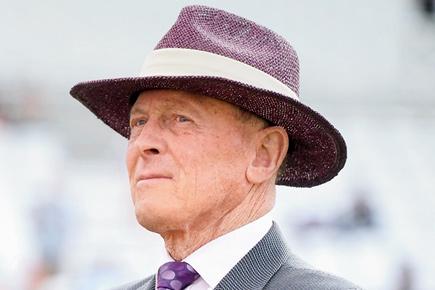Controversial England batting legend Geoffrey Boycott made a grovelling apology yesterday for remarking he needed to "black up his face" to get a knighthood at an event last week


Geoffrey Boycott
Controversial England batting legend Geoffrey Boycott made a grovelling apology yesterday for remarking he needed to "black up his face" to get a knighthood at an event last week. Boycott, 76, astonished his audience with his comment during a question and answer session in one of the intervals at last week's first Test with the West Indies.
Boycott, who played a pivotal role in organising the 1982 England rebel tour of South Africa when sporting links had been cut with the rest of the world because of the apartheid regime, said knighthoods had been bestowed on West Indian cricketers like "confetti". "Mine's been turned down twice. I'd better black me face," Boycott is reported to have said according to a guest at the event cited by The Daily Mirror. The guest at the event said the remark though intended as a joke was "crass" and went down like a "lead balloon". However, Boycott — who has overcome throat cancer in 2002 to become a popular and outspoken pundit on BBC Radio's globally renowned Test Match Special —took to Twitter yesterday to unreservedly apologise.
"Speaking at an informal gathering I was asked a question and I realise my answer was unacceptable," he tweeted. "I meant no offence but what I said was clearly wrong and I apologise unreservedly. I have loved West Indian cricket my whole life and have the utmost respect for its players."
The BBC would not comment on whether he would continue to play a part in the ongoing West Indies three match Test series although they did issue a statement welcoming his apology. "He has rightly apologized unreservedly for these clearly unacceptable comments," a BBC spokesperson said.
West Indies greats like Viv Richards, Garfield Sobers and Curtly Ambrose have been knighted whilst the last England cricketer to be knighted was Ian Botham — no stranger to controversy himself — in 2007.
 Subscribe today by clicking the link and stay updated with the latest news!" Click here!
Subscribe today by clicking the link and stay updated with the latest news!" Click here!









